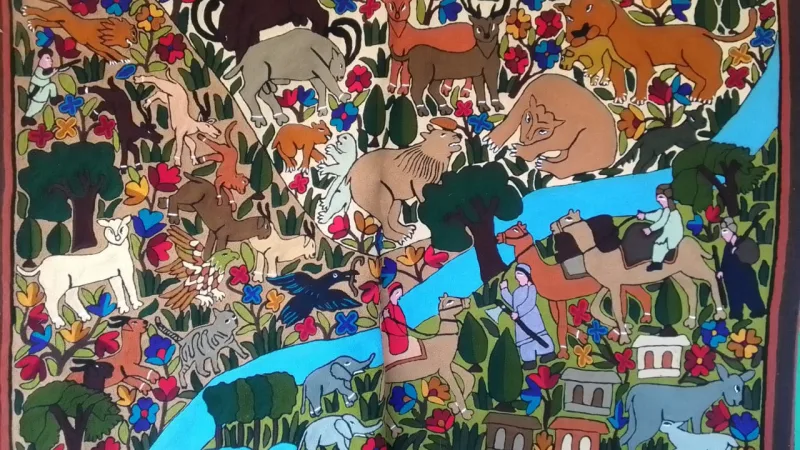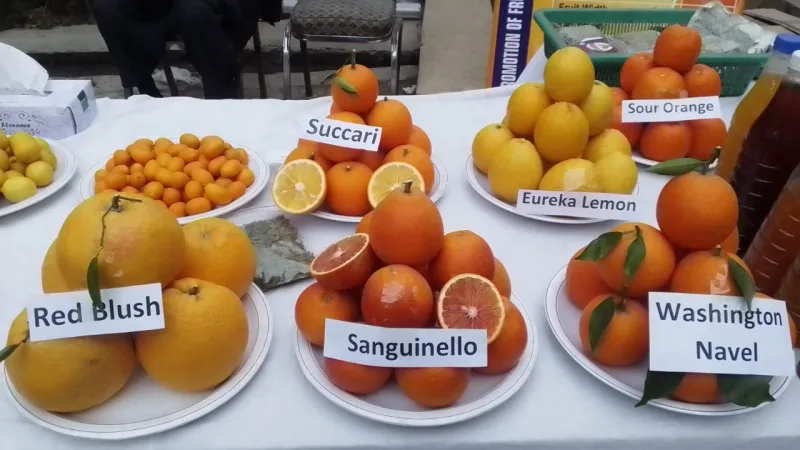OliveCulture Expands Olive Farming Expertise with Nationwide Masterclass
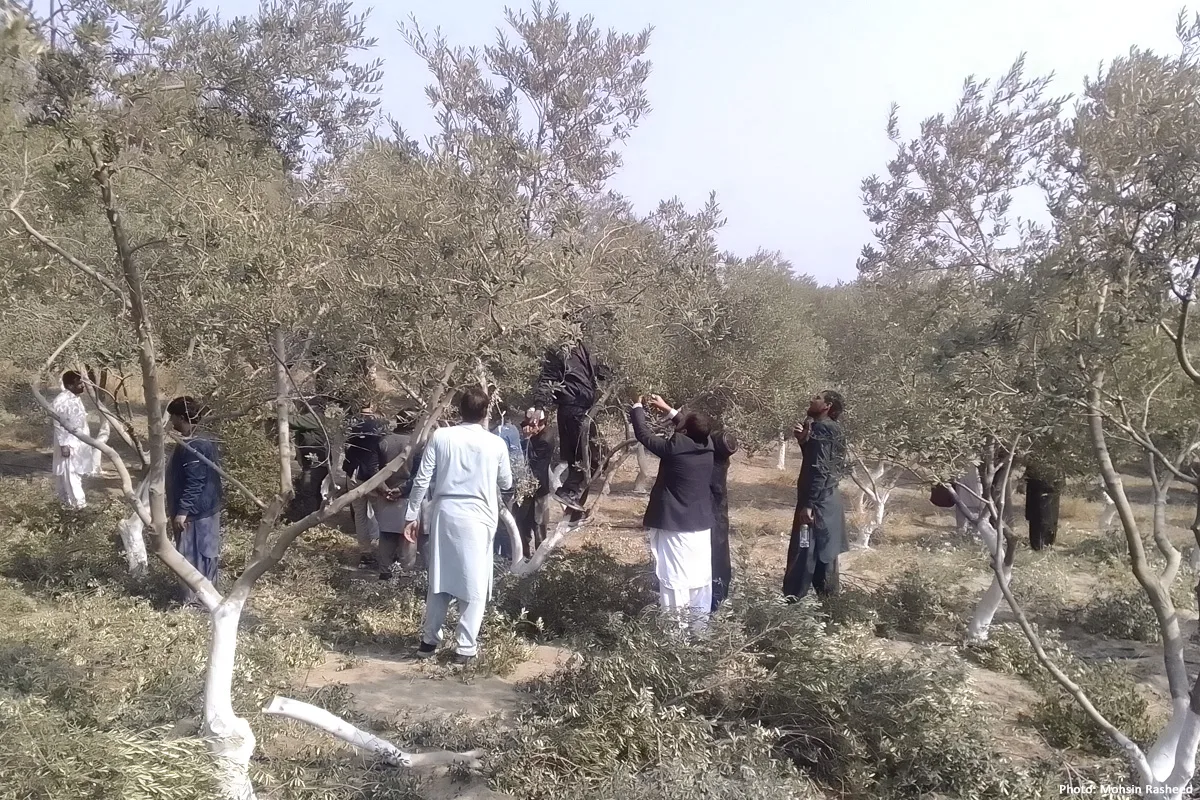
The OliveCulture II Scale-up Project has successfully completed an intensive series of olive training sessions for farmers across Pakistan. The Masterclass Training Program aimed to introduce advanced techniques in olive tree pruning, soil management, and nutrition, empowering farmers with the latest cultivation methods.
The program brought together farmers, technicians, and key stakeholders, witnessing overwhelming participation from Pakistan’s growing olive community. This initiative was particularly beneficial for newcomers to the field, equipping them with cutting-edge knowledge and best practices to enhance their yield and farm sustainability.
Spanning Provinces: A Nationwide Initiative
From the olive-rich remote areas of Balochistan to the thriving plantations in Khyber Pakhtunkhwa (KPK) and the renowned Olive Valley of Punjab, the OliveCulture team traveled thousands of miles to train and educate farmers. Experts at the project strongly believe that Pakistan holds immense potential for olive cultivation due to its favorable climate and soil conditions.
What is the Masterclass Training Program?
Recognizing the lack of essential technical assistance for olive farmers, the Italian government-funded OliveCulture project initiated a comprehensive training program across all provinces of Pakistan.
The primary goal of this initiative was to provide hands-on technical training to olive growers. To achieve this, OliveCulture brought in seasoned experts from Italy, who shared their extensive experience and world-class knowledge. Their training covered everything from planting techniques to maintenance methods, ensuring farmers could adopt global best practices.
This three-day training program was conducted in multiple regions. It commenced in Punjab in late January and concluded in Haripur, Hazara Division, KPK, on February 7, 2025. Farmers were selected based on a rigorous and transparent process, ensuring that only the most dedicated and deserving participants received training.
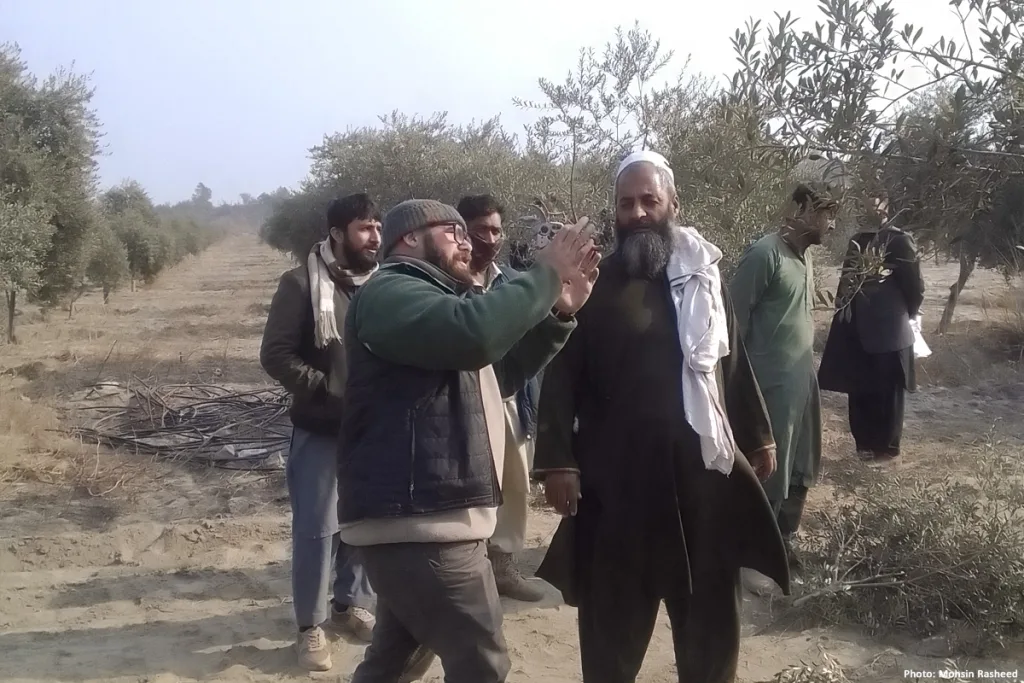
The training featured three key sessions, each held in a different province—Balochistan, Punjab, and KPK. The organizers emphasized their mission to elevate the olive value chain by enhancing productivity, improving farm resilience, and strengthening livelihoods. Ultimately, the program aims to make Pakistan’s olive sector sustainable and prosperous.
A Training Journey Across Balochistan, KPK, and Punjab
Punjab: The Heart of Olive Cultivation
The first session took place in Punjab, a region renowned for its suitability for olive cultivation, particularly the Potohar region. With millions of acres of land ideal for olive farming, Punjab has become a hotspot for growers. The training in Punjab also included participants from Azad Jammu & Kashmir (AJK) and Gilgit-Baltistan (GB), ensuring that farmers from northern regions could benefit as well.
Participants visited the Barani Agricultural Research Institute (BARI) in Chakwal, Pakistan’s leading research center for olive studies. Farmers gained valuable insights into the latest research and techniques aimed at maximizing productivity and sustainability.
Also Read: National Olive Gala 2024: Celebrating Pakistan’s Olive Potential
Balochistan: A Province with Untapped Potential
The second phase of the Masterclass Training Program took place in Balochistan, a region with immense olive-growing potential due to its ideal climate and fertile soil. The training session was held at the Agriculture Research Center in Quetta, where farmers visited top farms in the region.
Trainers conducted practical demonstrations on olive plants, allowing participants to gain hands-on experience. These field exercises ensured that farmers could directly observe and implement the techniques demonstrated by experts.
Khyber Pakhtunkhwa: Expanding the Olive Horizon
The final training session was conducted in KPK, a province with significant potential for olive cultivation. The session was held in Nowshera and Haripur, where participants had the opportunity to visit well-maintained olive farms. The farm owners were highly cooperative, encouraging farmers to fully benefit from the training.
At the conclusion of the Masterclass Training Program, participants received certificates and medals, recognizing their commitment to advancing olive cultivation in Pakistan.
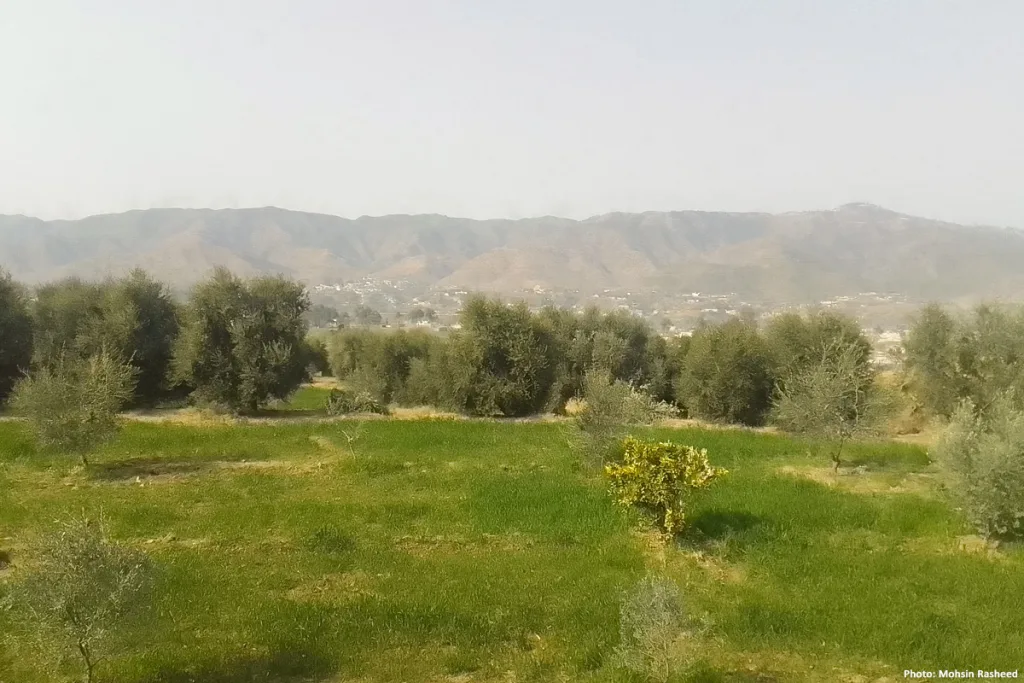
Meet the Experts Behind the Training Program
The OliveCulture II Scale-up Project was led by a team of distinguished experts:
- Dr. Francesco De Musso – An Italian olive grower and lead trainer, known for his passion and dedication. He was widely appreciated by the participants for his expertise and engaging training style.
- Mr. Arabi Awan – A highly skilled agronomist and a key figure in the OliveCulture project, contributing his extensive knowledge of olive research and cultivation techniques.
- Mr. Marcello Goletti – The head of OliveCulture in Pakistan, who recently took charge following the retirement of Dr. Marco Marchetti. Mr. Goletti brings a strong vision for Pakistan’s olive industry and aims to drive it toward sustainability and growth.
Mr. Marcello believes that Pakistan has the perfect conditions to develop a thriving olive industry. However, he stresses the need for government policies and initiatives to support farmers and enhance production. With the collaborative efforts of organizations like OliveCulture, Pakistan’s dream of a sustainable and prosperous olive industry can become a reality.
A Step Toward a Sustainable Future
The Masterclass Training Program has laid the groundwork for a more knowledgeable and skilled olive farming community in Pakistan. By equipping farmers with advanced techniques and research-backed practices, OliveCulture is playing a crucial role in strengthening the country’s olive sector. As more farmers adopt these modern methods, Pakistan is poised to become a significant player in the global olive industry.
Related: Pakistan’s Olive Industry: A Story of Hope and Hurdles




